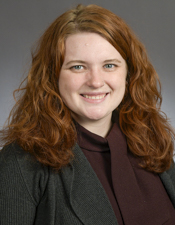Committees hear request for $2 million to fund community-based chemical dependency recovery organizations
Recovering from chemical dependency is a lifelong journey with many ways to become derailed.
Minnesota can do more to help people in recovery stay on track by funding recovery community organizations, says Rep. Sydney Jordan (DFL-Mpls).
“Recovery community organizations are community based nonprofits that provide free, non-clinical recovery support services for anyone who needs help at any point in their recovery journey,” she said. “They fill in the gaps people need before, during and after treatment.”
Jordan sponsors HF2084, which would appropriate $2 million from the General Fund in both years of the 2022-23 biennium to the Department of Human Services for grants to recovery community organizations.
The House Human Services Finance and Policy Committee held the bill over Wednesday for possible omnibus bill inclusion. There is no Senate companion.
Unlike hospitals and licensed private practitioners, recovery community organizations are not eligible to receive state reimbursement for chemical dependency treatment services.
Wendy Jones, executive director of St. Paul-based Minnesota Recovery Connection, said recovery community organizations can provide a peer recovery specialist, a “trained, neutral professional provider who has that lived experience of substance abuse disorder and recovery themselves.”
A specialist would not be a person’s sponsor in a 12-step program such as Alcoholics Anonymous, but arranging a connection to a sponsor would be one of many services a specialist could provide.
“People initiate recovery in treatment, but they don’t recover there,” said Farhia Budul, who describes herself as an East African woman in long-term recovery.
“When people graduate from treatment, they can benefit from Recovery Community Organizations. This is where they get recovery. This is where recovery is possible. They recover in the community. RCOs save money for the state and reduce recidivism,” Budul said in written testimony.
Related Articles
Search Session Daily
Advanced Search OptionsPriority Dailies
Speaker Emerita Melissa Hortman, husband killed in attack
By HPIS Staff House Speaker Emerita Melissa Hortman (DFL-Brooklyn Park) and her husband, Mark, were fatally shot in their home early Saturday morning.
Gov. Tim Walz announced the news dur...
House Speaker Emerita Melissa Hortman (DFL-Brooklyn Park) and her husband, Mark, were fatally shot in their home early Saturday morning.
Gov. Tim Walz announced the news dur...
Lawmakers deliver budget bills to governor's desk in one-day special session
By Mike Cook About that talk of needing all 21 hours left in a legislative day to complete a special session?
House members were more than up to the challenge Monday. Beginning at 10 a.m...
About that talk of needing all 21 hours left in a legislative day to complete a special session?
House members were more than up to the challenge Monday. Beginning at 10 a.m...
